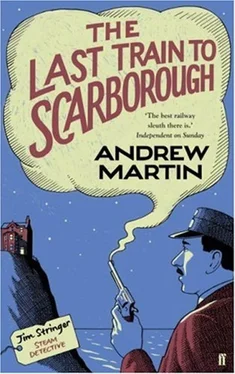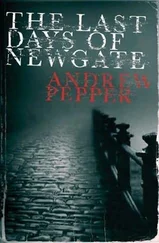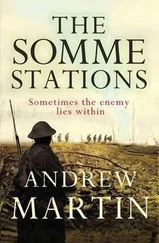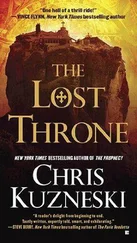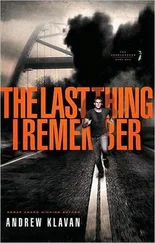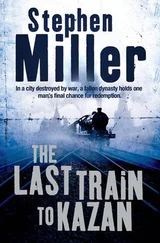I thought again of Parker and his office. It commanded a view of the old station, which was now used as an overflow siding for coal wagons, but it was a world away from those wagons, with the oil paintings on the wall, the thick carpets, the law books as heavy and handsomely bound as bibles. There were rows of silent ledger clerks, who recorded the decisions of the office brains, and everything flowed smoothly and silently on a river of black ink.
Behind me, Whittaker and Flower, who'd fallen silent on first seeing me, had regained their pep and were bickering after their usual fashion.
'How many drinks have I stood you over the years?' Flower was saying (or maybe Whittaker, but it hardly mattered).
'I've no idea,' came the reply,'… Not many.'
'No, no, think about it. Tot it up.'
'I should say it comes to about exactly half the amount I've bought you.'
'I should say it does not.'
There hadn't been a single cross-grained individual in that law office; every face had smiled at me at every turn. But when I got out of there I was relieved… in which case how would I stand a lifetime of it? The money I'd be earning after five years would smooth the way, of course: I would eat luncheon at dinner time, and ride in cabs. Or I saw myself atop my own Beeston Humber, with a gearing to meet every condition of road.
And I would be James, not Jim.
I looked up at the window, and thought: Lightning! but it was the conductor flashing the electric lights and bellowing up, 'Terminus!' I looked back: Flower and Whittaker had bolted. They would already be inside the hotel, the name of which filled the top deck windows on the left side: BEESWING. Just the one word. The letters were green, and seemed to glow in the blustery night even though they were not illuminated. For some reason, I knew they meant trouble.
As I stepped off the tram, I gave the conductor a cheery enough 'Good night!', but I was thinking that we ought not to have been dragged out all this way for the 'do'. It ought to have been held at the Railway Institute, which was hard by the station and our office, but the Chief had had a falling out with Dave Chapman, who ran the bar and booked out the social rooms there. Chapman had found the baize scraped and a little torn after a billiards session involving some of the men from the Rifle League. He had sent the bill for repair directly to the Chief, who was one of the high-ups of the League. Well, there'd been a hell of a row. The Chief wouldn't pay the bill. He made out that Chapman was down on all shootists because his flat was right next to the shooting range, and he was kept up at all hours by the firing. The Chief had turned on Chapman even though the two had been great mates, which was how the Chief had come to know the whereabouts of Chapman's flat and so on. He had a habit of turning on people, especially lately, and I marvelled at the way I managed to keep in his good books, and wondered how long it would last.
The Chief had set about trying to get Chapman stood down, and meanwhile started looking out for another venue for the 'do'. Favourite was the Grapes in Toft Green next to the railway offices, which was really called Ye Grapes, but not by the railway police blokes, who preferred it to all the nearby Railway Taverns and Railway Inns, and pubs named after locomotives, perhaps because the new landlord of it had been in the railway police himself before my time. But he hadn't had a licence for functions, or was short-handed or something. So that was out, and the Beeswing was in.
The place was brand new but meant to look old; handsome enough, but more of a pub than a hotel… and where the wings of bees came in, I couldn't guess. Fastening up my Macintosh, I decided to take a turn down the road rather than going straight in. This was the edge of York, and my way led me first past a muddy building site. A sign read: 'Construction by Walden and Sons', and I wondered why anyone would want to lay claim to what presently looked like a battleground. Further, I came to a children's park. One loutish-looking kid went back and forth in the gloom on a brand-new swing that creaked even so. He had an unpleasant look of not being content with the swing but waiting for something else to happen. I walked on beyond the limit of the York lights, and walked past cows standing stock still in fields, as though for them too time had stopped.
I turned and went back towards the hotel. The tram that had brought me up was rocking away into the distance, and another Number Nine was drawing up, about as thinly patronised as the previous one. I watched as one man climbed down: the Chief. I tipped my bowler at him (saluting had somehow long since gone by the board between the two of us), and he lifted his squash hat clean off his head, at which the wind made his few strands of orange hair rise up as well, in a kind of double salute.
'Evening, sir,' I said.
'Don't stand out here nattering, lad,' he said. 'The beer's gratis until nine o'clock.'
As we entered the hotel by a side door, I unbuttoned my topcoat, and the Chief saw my smart rig-out. He looked taken aback for a second. He hadn't been in the police office himself that day – he was in it less and less often – but he knew I'd been away from it too, and he knew why. He didn't mention my interview with Parker, however. He'd never either encouraged me or discouraged me in the plan to turn solicitor. But I knew he didn't like it, and this because he couldn't stop it. The Chief liked to control people – he was like the wife in that way – and now he was losing control of me. The Chief said, 'I've a spot of business to mention to you, lad.'
'I know,' I said.
I followed him over to the bar, where, instead of talking to me, he fell in with Langbourne, the charge sergeant, so I was left dangling.
We railway coppers had been kept apart from the Beeswing regulars (if such a class existed) by being put in what might have been the function room. It smelt of new wood varnish, and I half expected to see pots of the stuff lying around. There was a stage, and a new piano, but there would be no turns. There would just be free beer, followed by cut-price beer, and that would be quite sufficient. There were about a dozen from the police office, and a few station officials and hangers-on besides. The fellow at the bar gave me a glass of ale without needing to be asked, and old man Wright, the Chief Clerk, came up. He looked rather canned already.
'You're off, then?' he said, wavering slightly.
'Very likely,' I said, 'but not yet a while.'
He took a belt on his drink, and cocked his eye at me.
'When’ he enquired, quite sharply.
Old Man Wright was inquisitive to a fault, which was indecent somehow in a man of his age.
'It's not settled yet,' I said.
'How's your missus?' he said.
'All right,' I said. 'Yours?'
Our wives both worked part-time for the Co-operative Women's Union, and were both strong in their feminism.
'They're opening a new store, Acomb way,' he said.
'I know,' I said.
Silence for a space.
'And that little lass of yours,' said Wright, 'what's she called again?'
'She's called Sylvia,' I said, taking a belt on my beer and grinning at Wright. 'I don't suppose I need explain why.'
Wright frowned down at his pint.
'Why?' he said, looking up.
'Sylvia Pankhurst, I said. 'It was the wife's doing. But it's a pretty name.'
Another silence, in which I drained my glass. Wright drifted off, and I asked the barman the time of the last tram.
'Ten thirty,' he said.
'Because I don't want to be stranded here.'
'You do not,' he said, 'take it from me.'
'Are there any sandwiches laid on?' I asked him.
'Laid on what?’ he said, and I knew he was not a York lad.
I decided that I would be on that last tram, and that I might as well put away a fair few pints beforehand. I sank a couple more in the company of Shillito, the uniformed sergeant, and Fred Thomas, who was not a copper at all but the deputy night station manager. The talk wasn't up to much. Trams came periodically crashing up beyond the windows. They made more noise and vibration than was needful, and each time I thought some disaster was in the offing.
Читать дальше
